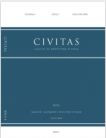KARIJERNA ADAPTABILNOST, OSOBINE LIČNOSTI I SOCIODEMOGRAFSKE KARAKTERISTIKE KAO PREDIKTORI PREDANOSTI ORGANIZACIJI
CAREER ADAPTABILITY, PERSONALITY TRAITS AND SOCIO-DEMOGRAPHIC CHARACTERISTICS AS PREDICTORS OF ORGANIZATIONAL COMMITMENT
Author(s): Katarina Suvajdžić, Dušana Šakan, Mirjana Franceško, Željka BojanićSubject(s): Social Sciences, Sociology, Personality Psychology, Accounting - Business Administration
Published by: Fakultet za pravne i poslovne studije dr Latar Vrkatić
Keywords: career adaptability; personality traits; organizational commitment
Summary/Abstract: The purpose of the study was to determine the extent to which career adaptability, personality traits, and socio-demographic features account for organizational commitment among the employed population. The study was conducted on an appropriate sample of 390 employees in the public (34%) and private sector (66%) in Serbia (42% male, 58% female), average age of 40. 46,2% of the respondents occupy executive positions, and 58,2% non-executive positions. Criterion variables are summative scores of organizational commitment dimensions (afective, normative and instrumental). Predictor variables are socio-demographic features (gender, organizational role, organization type, years of employment (total), years of employment (current organization), age, and education) as summative scores on the six-dimension HEXACO-based model (Honesty, Emotionality, Extraversion, Agreeableness, Conscientiousness, Openness to experience) and summative scores on career adaptability scales (concern, control, curiosity and con#dence). Employing hierarchical multiple regression-based analyses, we have determined that personality traits, socio-demographic features, and career adaptability aspects account for 29% of afective commitment variance, 18% of normative commitment and 17% of instrumental commitment. In order of magnitude and importance, socio-demographic features first and personality traits second can be considered stable predictors of afective and normative commitment, whereas career adaptability makes for the least stable predictor. Personality traits are the most important factor in instrumental commitment, then socio-demographic features, whereas career adaptability is the least important factor. A"ective commitment is more common among employees occupying executive positions, employees with longer employment od in the organization, and among employees in the private sector who display higher levels of extraversion, honesty and agreeableness, and levels of control. Normative commitment is on avarage higher among executives, in the private sector, among employees with shorter total employment (but longer employment in the current organization), and among older employees with higher extraversion, agreeableness and lower openness. Instrumental commitment is on average higher among employees with longer employment period in the organization and older respondents, and among those with higher emotionality and honesty, and lower extraversion. We can conclude that socio-demographic features constitute a major factor in organizational commitment, while personality traits are less significant. Career adaptability is a minor factor, and only for some aspects of organizational commitment. Based on the results obtained, we have fomulated a number of practical implications that may be of use to occupational psychologists in creating interventions to increase organizational commitment.
Journal: Civitas
- Issue Year: 10/2020
- Issue No: 01
- Page Range: 28-49
- Page Count: 22
- Language: Serbian

